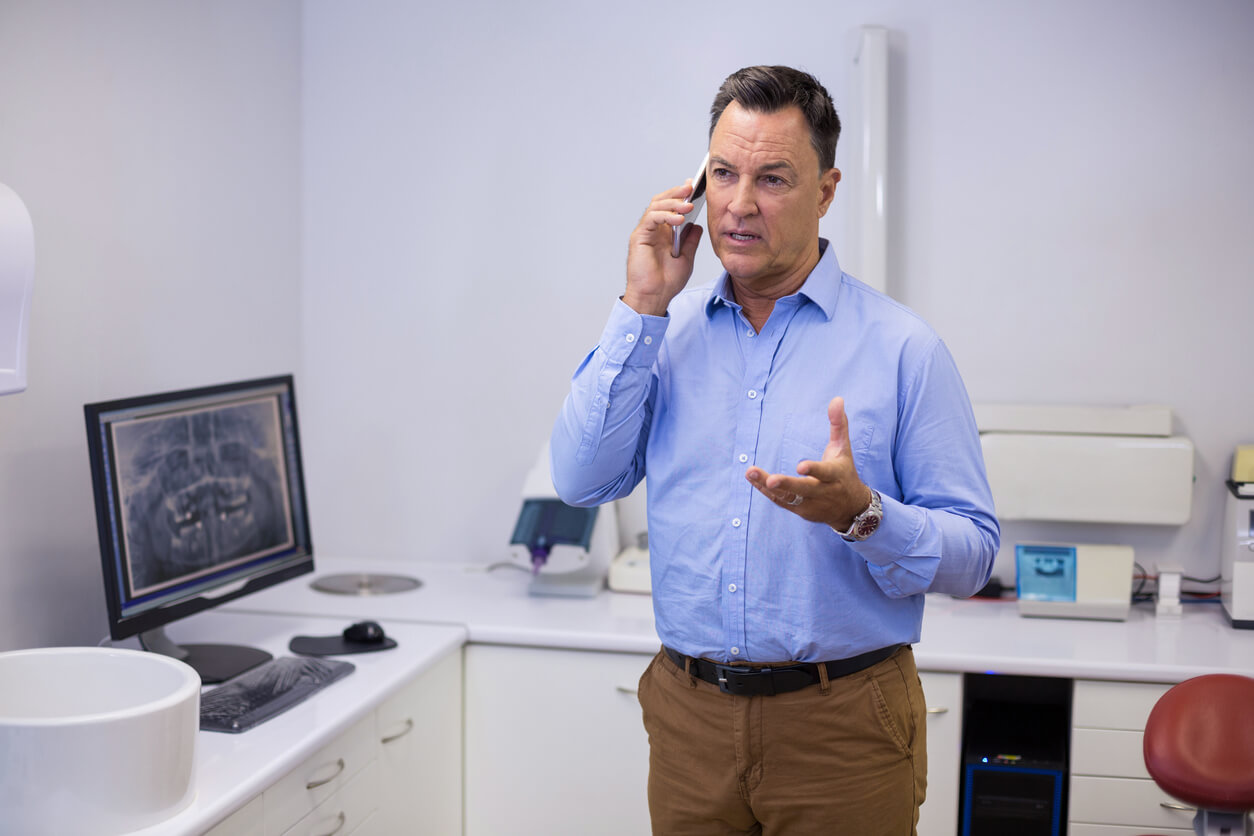As a highly capable New York dental malpractice lawyer with decades of successful legal outcomes behind him, Lance Ehrenberg, Esq. has encountered and addressed various reasons for dental malpractice lawsuits. One significant issue that arises in such cases is the failure of a dentist to refer a dental patient to a specialist when necessary.
This failure can have serious consequences for patients. Because general dentists are “first responders” for most problems with teeth, mouth, and gums, their failure to refer patients to specialists as necessary may, in some cases, be considered negligence and may result if a dental malpractice lawsuit. If you believe that your dentist’s failure to refer you to a dental or other medical professional has caused you serious harm, now is the time to consult with Lance Ehrenberg to find out whether you have a viable dental malpractice claim.
Reasons Dental Patients May Require Referrals
There are numerous reasons a dental patient may require a referral to a specialist. Here are ten specific scenarios in which a referral to a specialist may be called for:
1. Suspicious Oral Lesions: If a dentist detects a suspicious lesion in the oral cavity that could potentially be cancerous, a referral to an oral and maxillofacial surgeon may be warranted. Without treatment, some cancers can metastasize and become incurable.
2. Suspected Diabetes: Patients presenting with signs of uncontrolled diabetes, such as severe gum disease or slow wound healing, should be referred to an endocrinologist for evaluation and possible management. Without proper treatment, diabetes can cause severe complications, coma or death.
3. Severe Gum Disease: Advanced cases of periodontal disease may require treatment by a periodontist, who specializes in the diagnosis and treatment of gum disease and the placement of dental implants. Without treatment, gum disease can result in bleeding gums and loss of teeth and bone.
4. Complex Tooth Extractions: Extraction of impacted wisdom teeth or teeth with extensive decay or root resorption may necessitate referral to an oral surgeon for safe and effective removal. A less experienced dentist may accidentally severe a nerve or cause other severe complications.
5. Orthodontic Treatment: Patients requiring orthodontic treatment for misaligned teeth or jaw discrepancies should be referred to an orthodontist for specialized care. Failing to diagnose a patient’s need for orthodontia may be a form of negligence and may cause the patient’s misalignment to become worse and harder to treat. Apart from causing tooth loss or gum disease, malocclusion affects the way you chew food, speak,and move your jaw. It can also make your smile unattractive and have a negative impact your mental health.
6. Root Canal Therapy: Cases involving complex root canal procedures or the need for retreatment of failed root canals may warrant referral to an endodontist, who specializes in treating diseases of the dental pulp and roots of teeth.
7. Temporomandibular Joint (TMJ) Disorders: Patients experiencing symptoms of TMJ disorders, such as jaw pain, clicking or popping sounds, and difficulty chewing may benefit from evaluation and treatment by a TMJ specialist or oral and maxillofacial surgeon in order to improve the patient’s condition or keep it from deteriorating further.
8. Oral Surgery: Surgical procedures such as dental implant placement, bone grafting, or corrective jaw surgery require referral to an oral and maxillofacial surgeon with expertise in these areas.
9. Pediatric Dentistry: Children with complex dental issues or developmental anomalies may benefit from care by a pediatric dentist who specializes in treating young patients and addressing their unique needs.
10. Sleep Apnea: Patients with suspected sleep-related breathing disorders, such as obstructive sleep apnea, may require referral to a sleep medicine specialist for diagnosis and management.
Why a Dentist May Fail To Refer a Patient to a Necessary Specialist
There are many reasons your dentist may have failed to refer you to a specialist when there was evident need — for example, because the dentist failed to take adequate X-rays or failed to interpret them properly, failed to pay sufficiently careful attention to your medical history or reported symptoms, or even out of pure arrogance. If you have been harmed by your dentist’s failure to take this necessary action, no excuse is good enough.
All healthcare providers owe their patients a duty of care, meaning their performance should always be up to an acceptable standard of care. If your dentist did not refer you to a specialist when any reasonable dentist would have done so, your dentist may be found liable for substantial damages to cover your losses, such as medical costs, lost income, and pain and suffering.
Steps Our Savvy Dental Malpractice Attorney Will Take to Prove Your Case
As soon as you get in touch with Lance Ehrenberg, he will begin formulating an effective litigation strategy. Although most dental malpractice cases are settled out of court, doing this will give him an edge during negotiations with opposing attorneys and insurance adjusters, and have him fully prepared if your case goes to trial.
While you rest and recover, Lance will:
- Investigate your case by gathering and reviewing all dental and medical records, including any diagnostic tests, treatment plans, and communications between you and your dentist.
- Consult with appropriate experts whose testimony will bolster your case.
- Advocate for you throughout negotiations in order to provide you with maximum compensation.
- Litigate aggressively if a trial becomes necessary to ensure a fair outcome.
Contact Lance Ehrenberg, Esq. Today
Proving dental malpractice is never easy, especially when failure to refer to a specialist is the focus. All the more reason to get in touch with a talented, experienced lawyer who specializes in this particular aspect of New York malpractice law. Call now for a free consultation to explore your legal options. Lance Ehrenberg’s goal, like yours, is to recover maximum damages and provide you with a sense that justice has been done.

